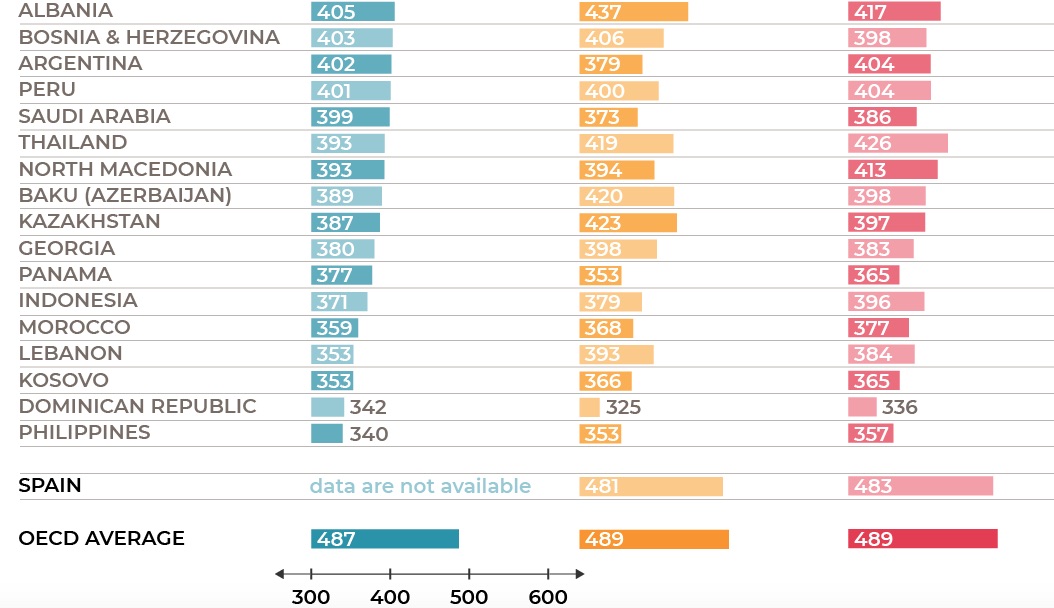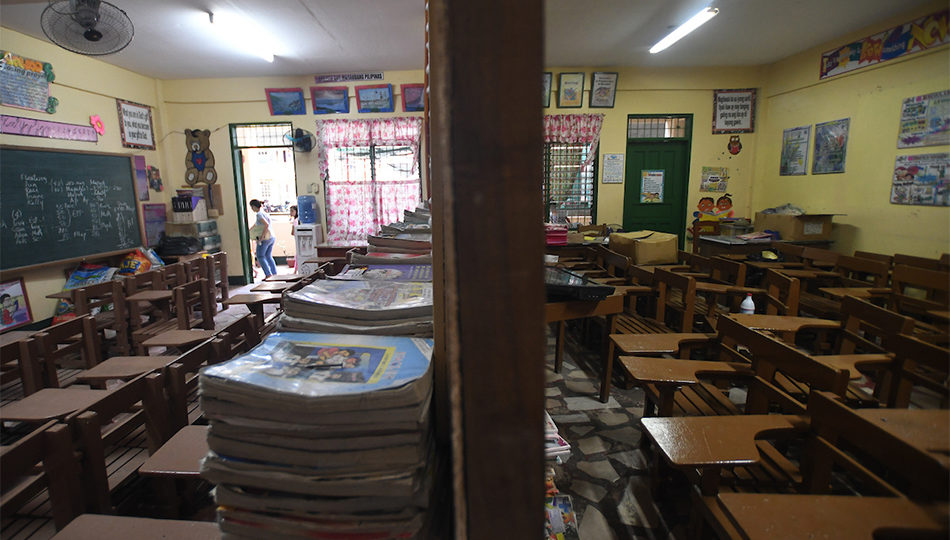It’s common knowledge that teenagers are dumb. But, unfortunately for us, that doesn’t make the Philippines’ exceedingly dire performance in a recent global exam any less shocking.
The results of the exam, called the Programme for International Student Assessment (PISA), were released yesterday, and showed that students from the Philippines lagged behind their peers from other countries, earning some of the lowest scores in reading comprehension, mathematics, and science.
This is the first time that the Philippines has participated in the PISA, which began in 2000 and is conducted every three years.

The results showed that when it comes to reading comprehension, 15-year-old Filipinos scored 340 points, the lowest score in the world, tying with fellow bottom-dweller the Dominican Republic. The study also showed that at least 80 percent of the Filipino students did not reach the minimum proficiency level when it comes to reading, one of the highest failure rates among participating countries.
In math, they scored 353 points, the second-lowest score, with the Dominican Republic having the lowest at 325. Filipinos’ science scores did not fare much better, at 357 points, again only slightly higher than the Dominican Republic’s low of 336 points. (In your face, Dominican Republic!)
Girls outperformed boys in reading and math, while both genders scored the same in science.
But the abysmal outcome isn’t necessarily the students’ fault. The study also found that the expenditure per Filipino student was the lowest of all of the countries that participated.
In other depressing findings, 65 percent of the students reported that they were bullied a few times a month, far higher than the 23 percent average. Seventy-two percent of the students said they fear failure, again, higher than the global average of 56 percent.
Read: PH schools suffer from dearth of books, teachers, classrooms in today’s first day of school
Finally, and oddly, only 31 percent of Filipino students said they believed that one’s talents and intelligence can be developed over time. (What the hell, kids?) The number was far lower than the global average of 63 percent.
In a statement released today, the Department of Education welcomed the results, saying they would help the government establish their “baseline in relation to global standards, and benchmark the effectiveness of our reforms moving forward. The PISA results, along with our own assessments and studies, will aid in policy formulation, planning, and programming.”
The department promised that to improve the quality of education in the country, it will review the K-12 curriculum, improve facilities, and train teachers and school administrators.




